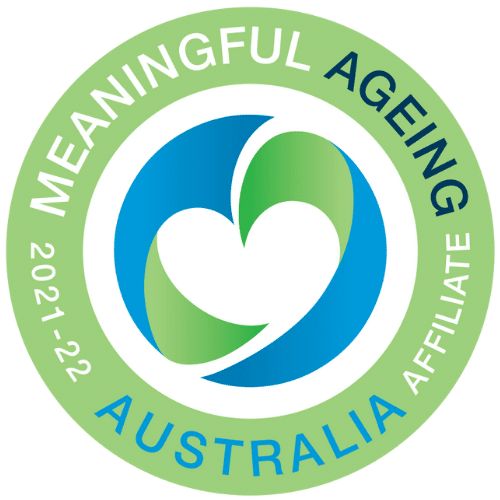Improving Quality of Life Through Spiritual Care
The identification and provision of spiritual needs is the responsibility of the entire care team as appropriate to their role, making referrals to trained spiritual care workers as necessary. Spiritual care is often wrongly conflated with religion; for some older people there is a strong connection and for others there is no connection. Spiritual needs can be met through a variety of ways including art, music, nature, relationships, rituals, symbols and sacred texts.
“Spirituality* is defined as a dynamic and intrinsic aspect of humanity through which persons seek ultimate meaning, purpose, and transcendence, and experience relationship to self, family, others, community, society, nature, and the significant or sacred. Spirituality is integral to quality of life and should be universally accessible to all older people in a way that is meaningful to their beliefs, culture and context”.
Our philosophy is that every older person receiving care should have access to high quality spiritual care that is integrated with the model of care in everyday practice. We believe everyone involved in the care of older people has a part to play in the provision of spiritual care as appropriate to their role. We also recognise the importance of specialised trained pastoral and spiritual care workers in supporting the provision of spiritual care to walk the journey with older people.
Our desire is to see the development of ‘National Spiritual Care Guidelines for Aged Care’ that link with existing standards and guidelines in other areas of care provision and stakeholders such as Palliative Care, Mental Health, General Practitioners and Alzeimher’s Australia. Australia has a world-class aged care system, however it is estimated** almost half of the residents living in nursing homes suffer from depression. Despite receiving good physical and social care, something is missing and we believe many older people are not adequately spiritually nourished and their lives lack meaning and purpose. Effective spiritual care is more than just a good thing to do for residents and even staff, it makes economic sense. We would love to talk to you about improving the quality of life of older people through a cost-effective model of spiritual care in your organisation.
We can improve the provision of spiritual care:
- Evaluate the effectiveness of existing spiritual and pastoral care initiatives
- Identify a spiritual framework and philosophy aligned to your values and mission
- Integrate spiritual care provision into clinical care and lifestyle programs
- Review processes for spiritual care assessments
- Provide training on spiritual care to all staff appropriate to their roles
- Identify spiritual care strategies that can be helpful in reducing depression
- Support implementation of spiritual care activities that create meaning and purpose
*Puchalski, C., Vittillo, R., Hull, S., & Reller, R. (2014). Improving the Spiritual Dimension of Whole Person Care: Reaching National and International Consensus. Journal of Palliative Medicine, 17 (6) 642-656
**Australian Institute of Health and Welfare. (2013). Depression in residential aged care 2008-2012. Canberra: Australian Institute of Health and Welfare.






